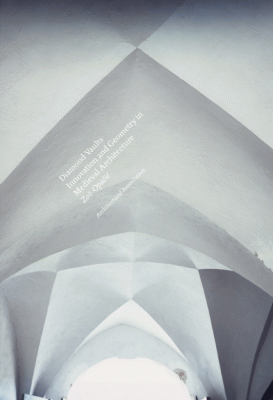Innovation and Geometry in Medieval Architecture
Zoë Opacic
The diamond vaults of Central Europe are among the most original yet little-known creations of medieval architecture: ceilings so complex that, as their name suggests, they recall the facets of a cut gemstone. First appearing in 1471 at the palace of Albrechtsburg in Meissen, Germany, they were employed for almost a century in locations as far apart as Gdansk on the Baltic to Bechyne in southern Bohemia (today's Czech Republic)...
From a historical point of view, diamond vaults show the continuing vitality of Gothic architecture in Central Europe, at a time when the rediscovery of the classical past in Renaissance Italy was changing the course of building. Architecturally, they offer some of the most impressive examples of geometrical experimentation and versatility in both secular and sacred spaces. But perhaps their greatest appeal is visual. The stark, concave-convex shapes of diamond vaults, with their lyrical play of the effects of light and shade, strike us today as incredibly modern.
Diamond Vaults is the first publication in English to explore this singular phenomenon. An in-depth text by Zoë Opacic describes their origins and intellectual foundation as well as their geometry and construction. Their contemporary appeal is demonstrated by a series of specially commissioned images by architectural photographer Sue Barr.
Zoë Opacic is lecturer in History and Theory of Architecture at Birkbeck, University of London, and has also taught at Morley College and the Courtauld Institute of Art.
72 pages, col. & b/w ills
249 x 170 mm, Paperback, 2005
978-1-902902-47-0
